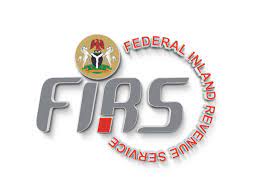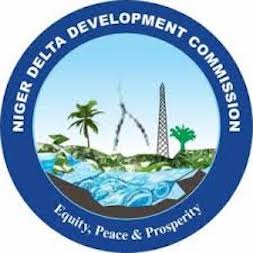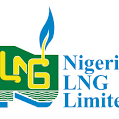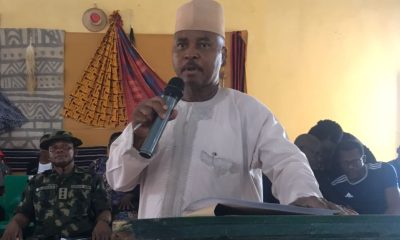Oil & Gas
NLNG Denies Involvement in Illegal Gas Exportation

The Nigeria Liquefied Natural Gas Ltd. (NLNG) has denied the allegation that the company was involved in illegal exportation of LNG or any of its products outside the country.
Mr Andy Odeh, the General Manager, External Relations and Sustainable Development, NLNG, issued the denial in a statement on Thursday in Lagos.
Odeh said the claim that NLNG was involved with an international cartel to illegally export products was false and calculated to cast the company and its leadership in bad light.
He said to set the records straight, deliveries of LNG from NLNG’s Bonny Terminal complies with all regulatory requirements for the export of its products.
According to him, they are made under various LNG sales contracts to destinations not limited to Europe, but also to the Far East, Greater Middle East, North America and South America.
He said this had ensured NLNG’s position as a significant competitive global LNG supplier, promoting the Nigerian brand.
Odeh said: “NLNG is a responsible corporate citizen operating its business according to strong business principles and ethics in accordance with requirements of relevant Nigerian and global laws and regulations.
“From the commencement of its operations in October 1999, NLNG has never, and does not, engage in “illegal” exportation of LNG or any of its products, nor is NLNG involved in any international cartel, as alleged.
“It is simply not true that the illegal exportation is still ongoing with the backing of some top officials of government.”
He explained that the LNG trade undertaken by the company was bound by strict protocols and controls, hence not amenable to the kind of illegitimate schemes alleged in the report.
Odeh said contrary to the allegation of export of LNG without paperwork, records exist for every single cargo of product loaded by the company since it commenced operations.
He added that there were fully accurate accounts of destinations, quantities loaded and unloaded and related earnings on each cargo which were demonstrable.
Odeh said for each of the past financial years which were periodically audited, including the periods alluded to in the report, the shareholders of the NLNG never reported that any cargo or product of the company was lost or unaccounted for.
He said the shareholders included the Nigerian National Petroleum Company Ltd. and three International Oil Companies (IOCs).
Odeh said: “Indeed, the possibility of such happening is beyond comprehension.
“For the avoidance of doubt, NLNG restates that the report paints a very incorrect picture of the company’s business and its LNG trade.
“It is at complete variance with the company’s vision as a globally competitive LNG company helping to build a better Nigeria.” (NAN)
NEWS
NGEP Urges Gas Reticulation In Buildings

By Olasunkanmi Onifade
Abuja, April 29, 2025 The National Gas Expansion Programme (NGEP) has called on stakeholders to promote the integration of gas reticulation systems in estates, districts, and industrial areas, following best practices seen in developed countries.
Chairman of NGEP, Prof.
Mohammed Ibrahim, made the call on Tuesday during the Builders’ Conference and Annual General Meeting of the Nigerian Institute of Building (NIOB), FCT Chapter, in Abuja.The conference, themed “Gas Reticulation in Building: Design, Safety, Environmental Compliance and Prospects for Builders,” focused on enhancing energy infrastructure in Nigeria’s built environment.
Ibrahim noted that with Nigeria’s vast natural gas reserves, gas reticulation offered a sustainable solution to improve energy accessibility, affordability, and reliability in homes and businesses.
“Gas reticulation in buildings presents a compelling pathway to a more sustainable, efficient, and resilient built environment.
“By prioritising sound design principles and ensuring strict adherence to safety and environmental standards, we can unlock the full potential of natural gas to drive progress,” he said.
He highlighted the key benefits of gas reticulation, including energy efficiency, cost effectiveness, versatility, and reliability.
Also speaking, the Chairman of the Council of Registered Builders of Nigeria, Samson Opaluwah, stressed the importance of capacity building for safe and efficient gas distribution.
He said this involved training engineers, technicians, and other professionals in system design, installation, and maintenance, while also strengthening regulatory frameworks and encouraging local innovation and manufacturing.
The Chairman of NIOB, FCT Chapter, Usman Okehi, emphasised the growing need to incorporate gas systems in residential, commercial, and industrial developments across Nigeria due to rising energy demands and gas availability.
According to him, with this advancement comes the need for strict adherence to design standards, rigorous safety protocols, and full environmental compliance.
“It is our responsibility as professionals and regulators to ensure these systems are functional, safe, and environmentally sound,” Okehi said.
He described the conference as a platform where stakeholders could explore the evolving landscape of gas infrastructure in building projects, share best practices, examine safety and environmental considerations, and assess future opportunities for builders in the sector.
The News Agency of Nigeria (NAN) reports that the Nigerian Institute of Building is the professional body for builders in Nigeria. It traces its origins to the Builders’ Society, established in London in 1834.
Oil & Gas
FG Inaugurates Committee to Enhance Gas Distribution in Urban Buildings

The Ministry of Petroleum Resources has inaugurated a Technical Working Group to enhance gas reticulation practices in Nigeria’s building industry.
The ministry’s Permanent Secretary, Amb. Nicholas Ella inaugurated the Technical Working Group (TWG) between the National Gas Expansion Programme (NGEP) and the Council of Registered Builders of Nigeria (CORBON) on Wednesday.
Reports= says that reticulation refers to the process of creating a network of pipes or tubes to distribute gas or other utilities to buildings or industrial sites.
The permanent secretary restated the importance of creating energy smart cities, saying that modern urban development relies on efficient gas and utility distribution systems,
“Most modern cities in developed countries have evolved to energy smart cities where energy, specifically gas and other utilities are piped to districts and estates.
“However, one of the key tools in creating energy smart city is the National Building
Code which, in essence, sets the guidelines on Building Pre-design, designs, construction and post-construction stages,” he said.
The permanent secretary reiterated the benefits of reticulated gas systems for households and businesses alike, adding that it ensured metered supply akin to water and electricity,
According to him, it eliminates the need for cumbersome refills, and also enhances safety by burying pipes and incorporating advanced safety equipments.
“The TWG is tasked with designing a comprehensive policy to implement best practices for gas reticulation using LPG, PNG, and Bio-Gas across Nigeria’s building sector.
“Key responsibilities include reviewing the current National Building Code, examining global gas distribution systems, and proposing quality standards for materials used in gas installations,” he said.
The permanent secretary emphasised the need for rigorous safety protocols and guidelines to ensure the efficient and safe use of gas in construction.
He urged the group to prioritise environmental sustainability in its recommendations, adding that the group is expected to submit its report by Nov. 15.
Earlier, Mr Samson Opaliwah, the Chairman of CORBON. expressed the council’s commitment to collaborate with the group to ensure safe uptake of gas for use in houses and housing estates in Nigeria.
“I assure you of the williness of CORBON to leverage the expertise and resources at her disposal to ensure that steps are put in place for gas infrastructure in buildings and estates.
“The gas infrastructure will be safe, sustainable and world-class.
” Our collective efforts will yield clear, standardised guidelines for safe and effective gas systems in buildings, matched with a skilled workforce to meet growing demands in Nigeria,” he said. (NAN)
Oil & Gas
Utilise Oil, Gas Industry Report as Tool for Public Debate – NEITI

The Nigeria Extractive Industries Transparency Initiative (NEITI) has urged stakeholders to utilise its 2022/2023 oil and gas report for civic engagement, constructive dialogue, and public debate.
Executive Secretary of NEITI, Dr Orji Ogbonnaya Orji, made the call at the report’s public presentation on Thursday in Abuja.
The report was unveiled by Mr Ola Olukoyede, Chairman, Economic and Financial Crimes Commission (EFCC), alongside Sen.
George Akume, Secretary to the Government of the Federation and Chairman, NSWG, NEITI and other dignitaries.Orji emphasised the report’s significance in guiding policy, encouraging public debate, and improving governance in natural resource management.
He highlighted the report’s comprehensive data on revenues, governance structures, operations, and compliance within the oil and gas sector.
Speaking at the public presentation of the report, Akume reaffirmed the Federal Government’s commitment to transparency principles.
Olukoyede pledged to investigate the report’s findings and recommendations, noting that NEITI’s previous reports led to the recovery of over N1 billion.
The report is available on NEITI’s website, providing valuable insights into the sector’s performance and challenges.
The presentation was attended by Chairmen of National Assembly Committees, captains of industries, members of diplomatic missions, development partners, civil society organisations and the media. (NAN)




























